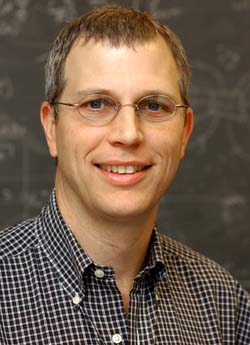Quantum computing innovator Robert Schoelkopf, Sterling Professor of Applied Physics and associate director of the Yale Institute for Nanoscience and Quantum Engineering, has been named a Max Planck Research Award winner for 2014.
The award, which honors excellence in a variety of fields within the natural and engineering sciences, life sciences, and humanities, is one of the most generously endowed science prizes in Germany. It is awarded annually to one scientist working in Germany and one scientist working abroad.
Schoelkopf will receive 750,000 euros, which may be used to fund research. The German Federal Ministry for Education and Research finances the prize, which is awarded by the Alexander von Humboldt Foundation and the Max-Planck-Gesellschaft.
Schoelkopf’s pioneering work in the development of solid-state quantum bits, called qubits, has led to a series of breakthroughs that eventually may bring revolutionary advances to computing. He and his lab — along with Yale collaborators Professors Michel Devoret and Steven Girvin — created the new field of circuit quantum electrodynamics, which allows quantum information to travel via microwave signals on wires.
Schoelkopf’s lab developed the first “quantum bus” for information processing and the first demonstration of quantum algorithms and quantum error correction with integrated circuits.
Currently, Schoelkopf continues to test the boundaries of quantum mechanics with his superconducting quibits, as he and other scientists search for a way to create a quantum computer.
“We succeeded in making our superconducting qubits very robust against interferences from the outside,” Schoelkopf explained.
The Max Planck Research Award presentation is set for Nov. 27, in Berlin. The other honoree, along with Schoelkopf, is Jörg Wrachtrup of the University of Stuttgart.
